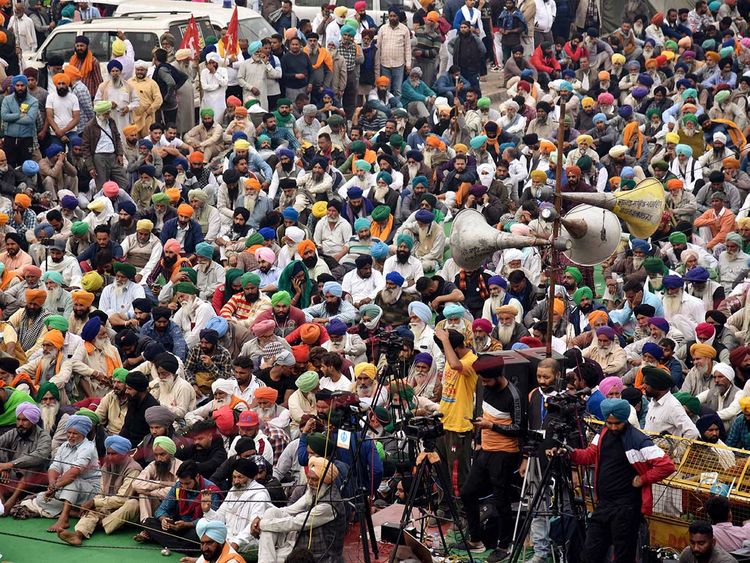
Farmers-protest-Delhi-India
New Delhi – Farmers in India in the last one month have set up protest camps and blocked roads in the capital city of New Delhi. This is against Indian Prime Minister Narendra Modi’s liberalization policy. The protests resulted in a nationwide strike last week.
Farmer’s in India basically rejected the government’s proposal to amend controversial laws allowing corporations to interfere in the direct sale and purchase of farm produce. Farmers are saying that they will increase protests seeking the withdrawal of these laws. These laws essentially harm the economic best interest of the agricultural community while being an advantage to food chain retailers.
The protests started a month back over agricultural reforms enacted. These reforms detach rules around the sale, pricing as well as storage of farm produce. Now farmers will not be protected from an unchecked free market.
The reaction of the farmers
Protesting farmers will intensify these protests this weekend and boycott the leaders of Prime Minister Narendra Modi’s ruling party. They may possibly block national highways also.
The agricultural community is angry, while retail giants including Reliance Industries and Adani Enterprises look at entering into the agriculture trade. Interestingly, however, Adani Group claims to have no role in the direct sale or purchase of farm produce. Adani Group claims that the government agencies hired them for merely storing the farm produce.
Government officials continue to try to include liberalization norms into the agricultural sector. Meanwhile, farmer organizations are mobilizing mass protests.
Farmers and small agricultural producers fear being at the mercy of the retail giants and corporates. They need assurance of floor prices especially for staple products like rice and wheat.
How will government-controlled wholesale markets help? Will the situation become from bad to worse.
Afia is a lawyer, journalist, an avid traveler, an avid reader, a foodie, and an amateur singer. She enjoys instrumental music with her glass of wine ?



